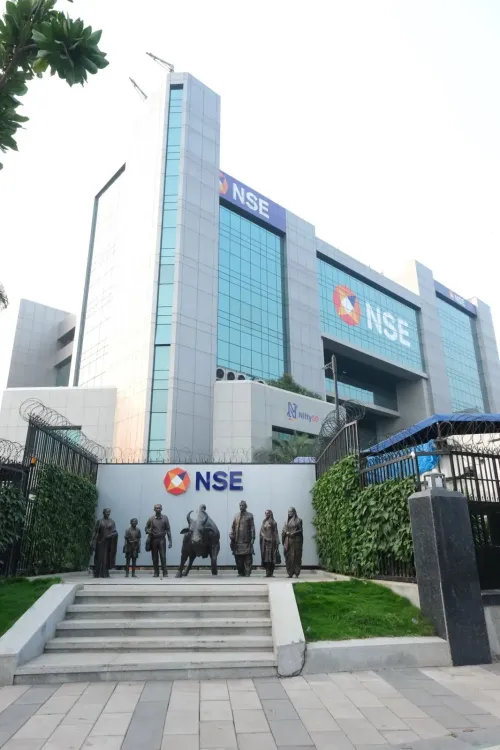Did NSE's Monthly Electricity Futures Attract Strong Engagement?

Synopsis
Key Takeaways
- Strong engagement in NSE's Monthly Electricity Futures.
- Trading volume reached 6,863 contracts.
- Valued at Rs 149.81 crore.
- Provides a risk-managed platform for market participants.
- Supports India's energy transition goals.
Mumbai, July 14 (NationPress) The National Stock Exchange of India (NSE) has reported robust participation following the introduction of its Monthly Electricity Futures (ELECMBL) contracts. This initiative marks a pivotal advance in the evolution of India's electricity derivatives market. As per NSE's data, a total of 6,863 contracts were traded during market hours, with a cumulative value of Rs 149.81 crore.
The initial trade commenced at Rs 4,430/MWh and concluded at Rs 4,364/MWh, showcasing intraday highs and lows at Rs 4,430/MWh and Rs 4,301/MWh, respectively.
The enthusiasm for these new derivatives indicates strong engagement from a diverse group of stakeholders, including power producers, distribution companies, large industrial consumers, and market intermediaries, according to NSE.
This launch of electricity futures derivatives is expected to provide market participants with a transparent, risk-managed platform that facilitates long-term power planning, mitigates electricity price volatility, and aligns with India's broader energy transition goals.
As documented by the Futures Industry Association (FIA) for 2024, NSE stands as the largest derivatives exchange globally by trading volume. Established in 1994, the exchange has consistently held the title of the largest stock exchange in India in terms of total and average daily turnover for equity shares since 1995, based on data from the Securities and Exchange Board of India (SEBI).
Trading, clearing members, and listed entities adhere to the rules and regulations set forth by the exchange and SEBI, as noted by NSE.
Additionally, in 2024, it ranked second globally in the equity segment by the number of trades (electronic order book), as reported by the World Federation of Exchanges (WFE).
In contrast, the Indian stock market concluded the first trading session of the week on a down note, influenced by declines in IT stocks and emerging global trade tensions over US tariffs. The Sensex finished at 82,253.46, down 247.01 points or 0.30 percent from the previous session's close of 82,500.47.









